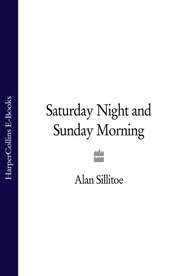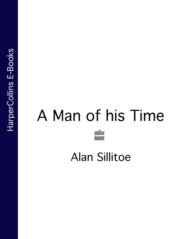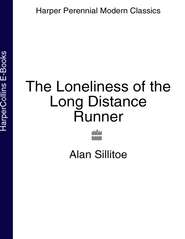По всем вопросам обращайтесь на: info@litportal.ru
(©) 2003-2024.
✖
Alligator Playground
Автор
Год написания книги
2018
Настройки чтения
Размер шрифта
Высота строк
Поля
A flowered shirt, pale unseasonal trousers, and a bomber jacket. ‘That’s how you often dress.’
‘Yes, but I usually have a choice.’
She sat. ‘I’m terrified. She might come back. I’ll have to triple lock the doors.’
‘So you should.’
She laughed, hoping not too hysterically. ‘Yes, but look at this,’ and reached behind the sofa. ‘I brought it up from the car.’
‘For God’s sake, don’t use that.’
‘If she gets in here I will.’
And he could see that she would. ‘I put a chest of drawers against my bedroom door last night. She’d cut my exercise bike to pieces with a hacksaw.’
Diana laughed. ‘Top marks for malice,’ then groaned from her bruises.
‘It’s not funny.’ There had been no long lunch today, and famishment made him hollow, which put him in a state to announce: ‘We’ve agreed on a separation at least. She’s leaving in the morning, and I’m not going back tonight.’
‘You can book a room at Claridge’s, then, though I don’t suppose they’ll let you in looking like that. But there’s the phone if you want to use it.’
‘Oh, come on, you don’t think I’m afraid of her, do you? If I start to hit back I might get into even more trouble than you with that entrenching tool.’
A man would think that, wouldn’t he? He could shack up in Cardboard City for all she cared.
‘I’ll be glad when she’s left, though. She’s been putting things in the Volvo since yesterday. I’ll give her an income. She’ll be able to live fairly modestly up North.’
‘Maybe she’ll find a nice big expensive flat in Nice.’
His squash playing shoulders were no longer taut, nor his features so cock-a-hoop. Something had cracked, though she wasn’t dim enough to imagine it would last very long. Unregenerate, he would get back to the same old ways as soon as he was married again.
‘I don’t care where she lives, as long as it’s a long way from me.’ He didn’t love Angela anymore because she wasn’t the same person as when he had married her. Then again, in the early days he hadn’t had time to get into his own stride. Even so, what she had changed into now that he had, wasn’t to his taste. Love at first sight hadn’t been solid enough for him to endure her recent fits of shark-ripping violence. She could go her own way, though he wasn’t sure enough of the justice of his conclusion to mention his thoughts to Diana, who waited for him to say something while he faced her from the sofa. ‘She can go to hell for all I care,’ he said.
‘I still think I should let the police know. She’s not fit to be on the loose. She should be in the loony bin.’
He thought the same, but tried to smile. ‘They’d only laugh at you.’
‘Not at me, they wouldn’t.’
‘After all, it’s just a domestic tiff.’
‘Oh, is that what you bloody well call it? Well, I don’t. I really think I ought to bell them, even if only to stop her doing the same to anyone else.’
‘It would get in the papers.’
So that was it. ‘You’d better go,’ she said, ‘before I start throwing things as well.’
The car was overloaded, so she would check the tyre pressures at the next garage. Then she could look forward to lunch at The George in Stamford. Surprising what few things were her own, though she had filled the old suitcase which had come down with her in the first place. Whatever was left could go to Oxfam. Maybe she would click with a very fit man in the restaurant.
She had been gratified at her strength on manoeuvring the trunk into the car, that they had maniacally filled before her miscarriage. Lifting it onto the tailgate had been a job, Tom looking on but not offering assistance. If he had she would have spat in his eye, and he knew it, so he was too cowed to take the risk. He thought her barmy as she worked it slowly in like a coffin. She didn’t altogether know why she wanted to, except it was impossible to leave such a cargo to someone like him.
Nor was she driving north for the last time. None of that end of the world dramatic stuff for her. She would come up shopping or to see a play whenever she felt inclined. ‘I’ll never go back up there,’ had often been her cry, but in those days it would have meant a defeat whereas now it was better than hanging around in the hope that Tom would wave his cock in her direction now and again.
He was free, so she supposed he would install one of those numbered ticket machines on the outside of the house. They used to have them at the deli counter in the supermarket, and people would pull out a little tongue of paper with their number on it so that they could just stand around and not look like they were queueing. The women waiting to go in and let him fuck them wouldn’t fight as to who was first.
Wherever she was going or would end up she’d get back to being herself before deciding what to do with her life. At least she had learned that nothing was forever. As for him, let him laugh, and go on with the only existence he was fit for. In any case, who cared for adventures when the discovering of her true self would be as much of one as she could attend to? She would screw enough money out of him to pay for a three-year stint at whatever university would take her, never mind that she would have gone by such a roundabout way to get there. Maybe she’d even do something in mechanics or engineering.
A man who couldn’t be true to you, and was only happy doing the dog-paddle in the turdy waters of the alligator playground, wasn’t worth the shoes he stood in. She would rather be on her own than know anyone like that. Whatever world you lived in was as big and as rich as you made it, and hers, she could only hope, would be bigger and richer than the one fading in the rearward mirror.
FOUR (#ulink_5c00622b-bba4-59bc-a3b6-300e3272461d)
TOM REMEMBERED CHARLOTTE saying – during dinner table chitchat at her house in the country, on a night when hail was driving almost horizontally against the windows, and Charlotte was waiting for a power cut so that she could set out candles and let them sample the lives of workers and peasants of seventy years ago – that a man who left his wife, and took up with a girl young enough to be his daughter, would soon repeat the mistakes which had destroyed the previous liaison.
Henry agreed. He had to. But Tom replied, pushing his cup forward for more coffee, that making the same irreparable gaffes with a new spouse was more interesting than staying with a woman to whom there was no more of your bad side to show. In any case, some years must elapse before boredom or acrimony crippled the new union, and by that time you might be dead.
Another disadvantage of not enduring the first ordeal, Barbara Whissendine suggested, was that a man never really got to know himself, and there was surely some value in that.
Tom, under scrutiny, retorted – and he was of course backed up by Norman Bakewell in this – that even supposing there was no more for a man to discover (and he may even so be well aware of all that there was) to remain in one emotionally arid gridlock would nullify all that experience had taught him up to that point, rather than illuminate the mind in any way – or words to that effect, after the prose was honed up in Bakewell’s ever-working brain.
A third point, perhaps more perceptive, not to say provocative, was that the gadabout was incapable of reasoning along such lines. Tom threw this in free. He was a man of action, he went on, not a vegetable deadbeat languishing at his fireside, like Henry, who may, he thought, for all anybody could tell, be a deeply philosophical character, though the only effect was to keep him securely under Charlotte’s thumb, and what kind of philosophy was that?
Too much reflection was often more useless, and demoralising, than too little, and made action difficult if not impossible. Norman Bakewell, who was at his most acute when cogging into others’ thoughts, went on to comment that whatever move one makes, even if it does little good, or even if it exacerbates the situation, must be better than the abandoned marital state of ongoing bitterness and eternal inertia – he concluded, reaching for his glass and then becoming too drunk to come out with anything that was either sensible or readable.
‘To stay in one marriage for life under any conditions deadens a man,’ Tom said, riding roughshod through Charlotte’s silence, ‘and argues deadness even in a woman’ – a nod to Barbara and Emmy Brites, who were holding hands – ‘but a man who gets hitched two or three times may have done so in order to try and rectify genuine errors.’
Nearly everyone around the table chipped in at this point, Emmy Brites coming up with the barb that a man has to be diabolically flawed to marry a third or a fourth time, an inference which Tom absolutely disagreed with, considering himself the opposite of a failure in life.
‘Men are blest who marry often,’ he said, and stood up to say it. ‘Those who don’t try more than once could be said to lack energy or, let’s face it, money, or confidence, or the good fortune to pick ’em and the know-how to have them fall in love with him. Most men, like most women I suppose, whether due to love, loyalty, or the inanition brought about by the inborn ability to put up with ongoing turmoil, stay with the same partner for life.’
Вы ознакомились с фрагментом книги.
Приобретайте полный текст книги у нашего партнера:
Приобретайте полный текст книги у нашего партнера:










